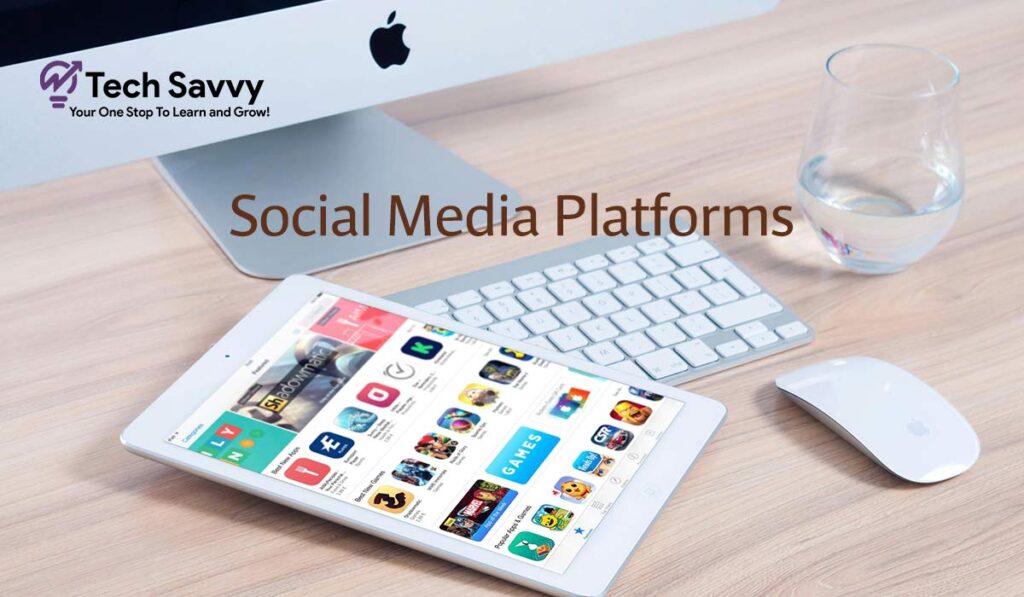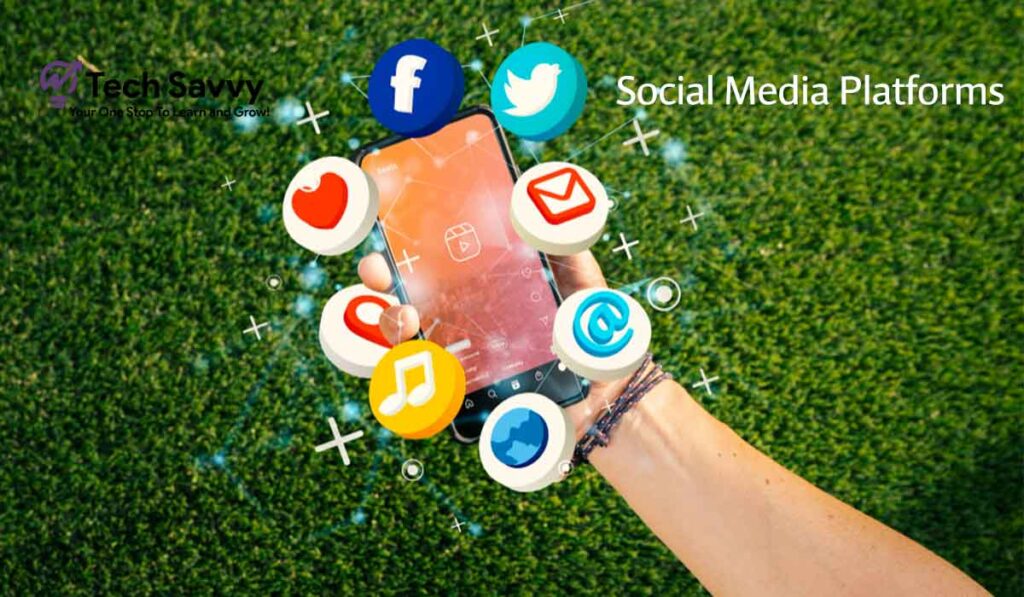In the digital era, social media has become an integral part of our lives, revolutionizing the way we connect, communicate, and share information. From its humble beginnings to the present day, social media has evolved into a diverse landscape of platforms catering to various needs and preferences.
What is Social Media?
Social media refers to online platforms and websites that enable users to create, share, and exchange content with others. These platforms facilitate interactions through text, images, videos, and other multimedia formats, allowing users to engage with each other in real time.
How Social Media Started?
The roots of social media can be traced back to the early days of the internet, with the emergence of platforms like Six Degrees and Friendster in the late 1990s and early 2000s. These platforms laid the foundation for the social networking phenomenon, paving the way for more advanced platforms like Facebook and Twitter.
Uses of Social Media in Today’s Age

Social media serves a multitude of purposes in today’s society, ranging from personal communication to professional networking and beyond.
Communication:
Social media provides a convenient and instantaneous means of communication, allowing individuals to stay connected with friends, family, and colleagues regardless of geographical barriers.
Networking:
Social media platforms offer valuable networking opportunities for professionals and businesses, enabling them to connect with industry peers, potential clients, and customers.
Marketing:
Social media has emerged as a powerful marketing tool, allowing businesses to reach their target audience with precision and engage them through targeted advertisements and promotional campaigns.
Information Sharing:
Social media platforms serve as hubs of information, where users can access news, updates, and insights on a wide range of topics, from current events to niche interests.
Pros and Cons of Social Media
While social media offers numerous benefits, it also comes with its fair share of drawbacks.
Pros:
- Connectivity:
Social media bridges gaps and fosters connections, allowing individuals to stay in touch with loved ones and build relationships with like-minded individuals.
- Accessibility:
Social media platforms are accessible to anyone with an internet connection, democratizing communication and information sharing on a global scale.
- Entertainment:
Social media offers a plethora of entertainment options, from viral videos to memes, keeping users engaged and entertained for hours on end.
Cons:
- Privacy Concerns:
Social media raises concerns about privacy and data security, as users may inadvertently share sensitive information or fall victim to data breaches and cyber-attacks.
- Addiction:
Social media addiction is a growing concern, with users spending excessive amounts of time scrolling through feeds and seeking validation through likes and comments.
- Spread of Misinformation:
Social media platforms have been criticized for their role in spreading misinformation and fake news, leading to confusion, polarization, and societal unrest.
Types of Social Media Platforms

Social media platforms come in various forms, each serving different purposes and catering to distinct user demographics.
- Social Networking Sites:
Platforms like Facebook and LinkedIn enable users to connect with friends, family, and professional contacts, share updates, and engage in conversations.
- Microblogging Platforms:
Twitter and Tumblr fall into this category, allowing users to share short-form content, thoughts, and opinions with their followers.
- Media Sharing Networks:
Instagram, Snapchat, and YouTube are popular examples of media-sharing networks, where users can upload and discover photos, videos, and other multimedia content.
- Discussion Forums:
Reddit and Quora are prominent examples of discussion forums, where users can ask questions, participate in discussions, and share knowledge on various topics.
Top 10 Social Media Platforms
With countless social media platforms available today, some stand out as leaders in terms of popularity, user engagement, and cultural impact.
Facebook:
With over 2.8 billion monthly active users, Facebook remains the largest social media platform, offering a wide range of features for personal and business use.
Instagram:
Known for its visual-centric approach, Instagram boasts over 1 billion monthly active users, making it a powerhouse for photo and video sharing.
Twitter:
With its character-limited tweets and real-time updates, Twitter attracts over 330 million monthly active users, serving as a hub for news, trends, and discussions.
LinkedIn:
Catering to professionals and businesses, LinkedIn has over 740 million members worldwide, offering networking opportunities, job postings, and industry insights.
Snapchat:
Popular among younger demographics, Snapchat boasts over 530 million monthly active users, known for its ephemeral messaging and augmented reality features.
YouTube:
As the largest video-sharing platform, YouTube attracts over 2 billion logged-in monthly users, offering a vast library of content ranging from tutorials to entertainment.
Pinterest:
With over 450 million monthly active users, Pinterest serves as a visual discovery engine, allowing users to discover and save ideas for their interests and projects.
Reddit:
Known as the “front page of the internet,” Reddit boasts over 430 million monthly active users, offering a diverse range of communities and discussions on virtually every topic imaginable.
TikTok:
With its short-form video format and viral challenges, TikTok has skyrocketed in popularity, attracting over 1 billion monthly active users worldwide.
WhatsApp:
As a leading messaging app, WhatsApp boasts over 2 billion monthly active users, offering encrypted messaging, voice calls, and video calls.
Which Social Media Platform is best for you?
Choosing the right social media platform depends on your personal or business needs, target audience, and preferences.
- Assessing personal or business needs:
Determine your goals and objectives for using social media, whether it’s staying connected with friends, promoting your business, or building a professional network.
- Understanding target audience:
Research your target audience demographics, interests, and online behaviors to identify which platforms they frequent and how they engage with content.
- Analyzing features and functionalities:
Evaluate the features and functionalities of different social media platforms to determine which ones align with your goals and preferences, whether it’s visual content sharing, networking, or marketing capabilities.
Conclusion
Social media platforms have transformed the way we communicate, connect, and share information in today’s digital age. From staying in touch with loved ones to building professional networks and reaching global audiences, social media offers endless opportunities for individuals and businesses alike. However, it’s essential to navigate this digital landscape mindfully, balancing the benefits of connectivity and engagement with the risks of privacy concerns and misinformation.
Frequently Asked Questions
What are the 5 most popular social media platforms?
Facebook, Instagram, Twitter, LinkedIn, and YouTube are among the top 5 most popular social media platforms based on active user numbers.
What do you mean by social media?
Social media refers to online platforms and websites that enable users to create, share, and exchange content with others, fostering communication and interaction in virtual communities.
How many social media are there?
There are countless social media platforms available today, catering to various interests, demographics, and preferences. While some platforms boast billions of users, others cater to niche communities and specific interests.

